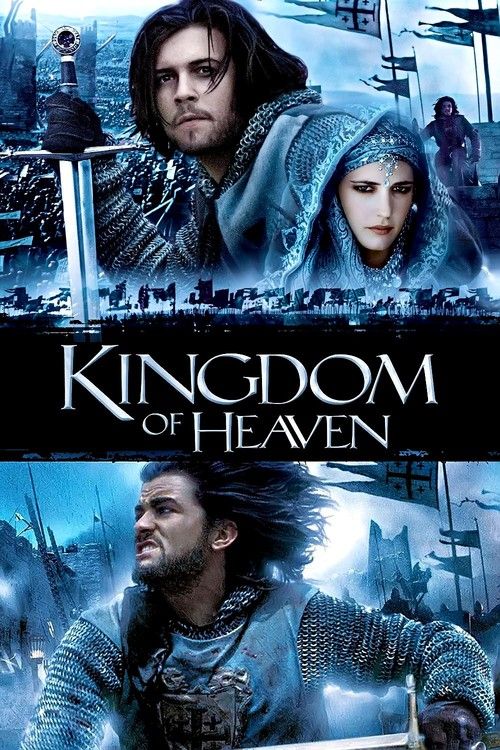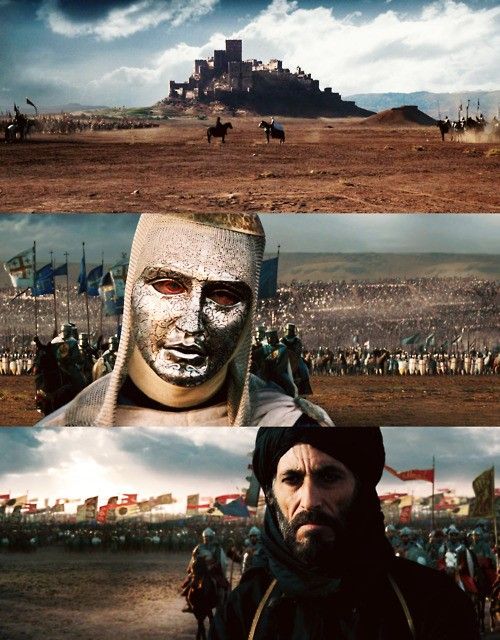Kingdom of Heaven (2005)

Kingdom of Heaven, directed by Ridley Scott and released in 2005, is an epic historical drama set during the Crusades of the 12th century. The film tells the story of Balian of Ibelin, played by Orlando Bloom, a blacksmith who becomes a knight and finds himself in the middle of religious and political conflicts in Jerusalem. The movie explores themes of faith, honor, and the complex nature of war, making it a thought-provoking and visually stunning cinematic experience.
One of the film’s greatest strengths lies in Ridley Scott’s masterful direction. Known for his ability to create grand and immersive worlds, Scott delivers breathtaking cinematography that captures the harsh beauty and turmoil of medieval Jerusalem. The battle scenes, especially the Siege of Jerusalem, are impressively choreographed, combining scale and intensity that keep the audience engaged throughout. The use of natural landscapes and detailed set design further enhances the authenticity of the historical setting.
Orlando Bloom’s portrayal of Balian is central to the film. Though his acting received mixed reviews, Bloom effectively conveys the character’s transformation from a grieving, reluctant man into a principled leader determined to defend a city caught between religious factions. Supporting performances by Eva Green as Sibylla, the queen of Jerusalem, and Liam Neeson as Balian’s father, Godfrey, add depth and emotional resonance. Edward Norton, as the noble and tolerant King Baldwin IV, delivers a quietly powerful performance that stands out as one of the film’s highlights.
The screenplay, co-written by William Monahan and Ridley Scott, takes some historical liberties, but it succeeds in exploring complex themes beyond the typical battle between Christians and Muslims. The film emphasizes tolerance, coexistence, and the human cost of fanaticism. It avoids portraying one side as purely good or evil, instead presenting a nuanced view of the Crusades. This approach gives the film a modern relevance, encouraging viewers to reflect on the consequences of religious and political extremism.
Despite its strengths, Kingdom of Heaven faced criticism upon release. Some viewers found the pacing uneven, particularly in the first half, which focuses more on character development and political intrigue than on action. Additionally, the theatrical version released in theaters was shorter and cut some important character moments, which led to a somewhat disjointed narrative. However, the extended director’s cut, released later, significantly improves the storytelling and is widely regarded as the definitive version.
Musically, the score by Harry Gregson-Williams complements the film’s epic tone without overwhelming the narrative. It supports the emotional beats and the grandeur of the battles, adding to the overall atmosphere.
In conclusion, Kingdom of Heaven is a visually spectacular film that combines historical drama with philosophical reflection. While it may not satisfy everyone seeking a straightforward action movie, it offers a rich and thoughtful portrayal of a turbulent period in history. Ridley Scott’s direction, impressive production values, and strong performances make it a memorable epic that encourages viewers to think about faith, leadership, and humanity in times of conflict.











